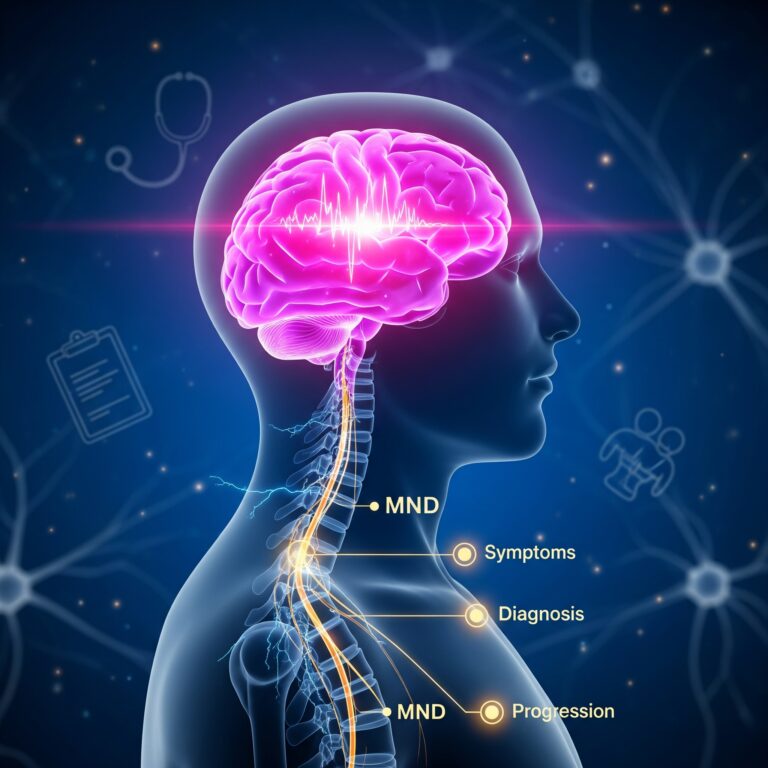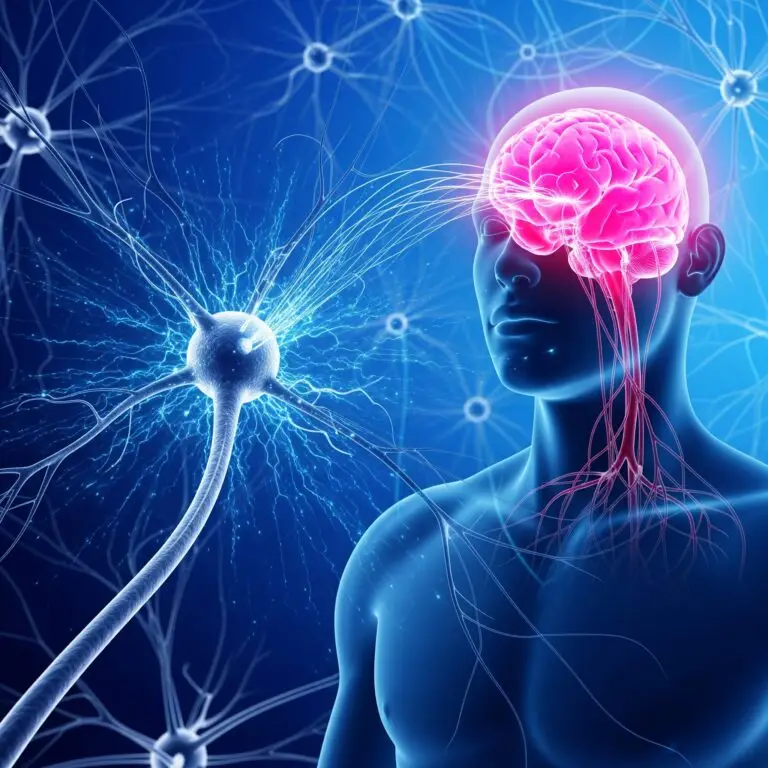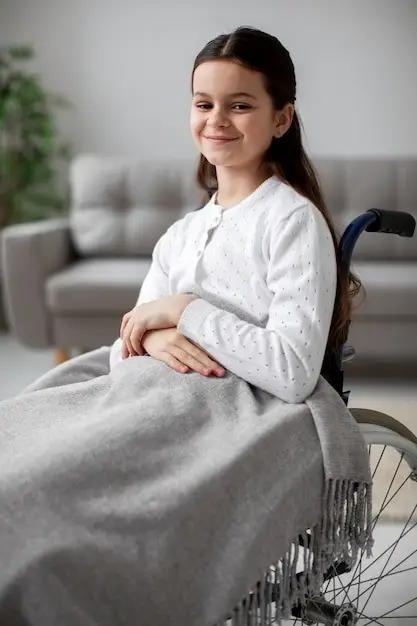Living with Muscular Dystrophy: Comprehensive Home Care Guide for UK Families
What does it mean to truly live well when facing a progressive condition like muscular dystrophy?
For Liam, a 34-year-old from Manchester, the answer came not from limiting his dreams, but from finding the right muscular dystrophy care to pursue them. Diagnosed with Duchenne muscular dystrophy in childhood, Liam has built a fulfilling career as a graphic designer, maintains close friendships, and enjoys his independence—all thanks to carefully planned muscular dystrophy home care that adapts to his changing needs.
Living with muscular dystrophy presents unique challenges, but with the right muscular dystrophy care and support in the UK, individuals can continue to lead meaningful, fulfilling lives in the comfort of their own homes. Understanding this condition and the muscular dystrophy home care options available is the first step toward creating a life of dignity, comfort, and possibility.
What is Muscular Dystrophy? Understanding the Different Types
Muscular dystrophy isn’t a single condition—it’s actually a group of over 30 genetic disorders that gradually weaken the muscles over time, as explained by Muscular Dystrophy UK, the leading UK charity supporting people with muscle-wasting conditions. Think of your muscles like the threads in a favourite jumper. In muscular dystrophy, these threads slowly become frayed and weak, making everyday activities more challenging as time goes on.
The most common types include:
- Duchenne muscular dystrophy: Usually diagnosed in early childhood, primarily affecting boys
- Myotonic dystrophy: The most common adult form, often diagnosed between ages 20-40
- Facioscapulohumeral dystrophy: Typically affects facial, shoulder, and upper arm muscles
- Limb-girdle muscular dystrophy: Primarily affects the muscles around the hips and shoulders
Each type progresses differently, which is why personalised muscular dystrophy care is so essential. What works for one person may not suit another, even with the same diagnosis. The NHS provides comprehensive information about the various types and their specific care requirements.
Muscular Dystrophy Home Care: Why It’s Essential for UK Families
Imagine trying to navigate daily life when simple tasks like getting dressed, preparing meals, or moving around your home become increasingly difficult. This is the reality for many individuals with muscular dystrophy. However, with proper home care support, these challenges become manageable stepping stones rather than insurmountable barriers.
Quality home care for individuals with this condition goes far beyond basic assistance. Professional muscular dystrophy carers understand that it’s about:
Preserving Independence: The right care team helps individuals maintain as much independence as possible for as long as possible. This might mean using adaptive equipment, modifying daily routines, or providing just enough assistance to keep someone safely mobile.
Preventing Complications: Muscular dystrophy can lead to respiratory issues, cardiac problems, and mobility complications. Experienced carers know what warning signs to watch for and how to prevent many of these secondary issues through proper positioning, breathing exercises, and regular monitoring.
Maintaining Quality of Life: Perhaps most importantly, good care ensures that muscular dystrophy doesn’t define someone’s entire existence. With the right support, individuals can continue pursuing hobbies, maintaining relationships, and achieving personal goals.
What Quality Muscular Dystrophy Home Care Looks Like
Physical Care and Muscular Dystrophy Support
Living with muscular dystrophy often means adapting to changing physical abilities. Professional carers trained in muscular dystrophy understand how to:
- Assist with personal care while maintaining dignity and privacy
- Support safe transfers and mobility using proper techniques and equipment
- Help with medication management, including complex regimens
- Monitor for respiratory complications and provide appropriate interventions
- Assist with physiotherapy exercises to maintain muscle function and flexibility
Emotional and Social Support
The emotional aspect of living with a progressive condition cannot be overlooked. Quality carers provide:
- Companionship and emotional support during difficult times
- Encouragement to maintain social connections and pursue interests
- Understanding of the unique challenges faced by individuals and families
- Assistance in adapting activities so they remain enjoyable and accessible
Family Support and Education
Caring for someone with muscular dystrophy affects the entire family. Professional care teams offer:
- Training for family members on safe care techniques
- Regular communication about changes in condition or care needs
- Respite care to give family carers essential breaks
- Guidance on equipment and home modifications
- Emotional support for family members navigating this journey
Practical Considerations for Families Seeking Muscular Dystrophy Care
Choosing the Right Muscular Dystrophy Care Provider
When selecting a home care provider for muscular dystrophy, consider these important factors:
Experience and Training: Does the care team have specific experience with neuromuscular conditions? Are they trained in proper transfer techniques, respiratory care, and the use of adaptive equipment?
Flexibility and Adaptability: Muscular dystrophy is progressive, meaning care needs will change over time. Can the care provider adapt their services as needs evolve?
Person-Centred Approach: Does the care team focus on the individual’s goals, preferences, and maintaining their independence, or do they take a one-size-fits-all approach?
Communication and Coordination: How well does the care team communicate with families, healthcare providers, and other professionals involved in care?
Questions to Ask Potential Muscular Dystrophy Care Providers
- What specific training do your carers receive regarding muscular dystrophy care?
- How do you ensure continuity of muscular dystrophy care with consistent carers?
- What is your approach to maintaining independence while ensuring safety?
- How do you handle emergency situations or sudden changes in condition?
- Can you provide references from other families dealing with similar muscular dystrophy conditions?
- What support do you offer to family members affected by muscular dystrophy?
For additional guidance on choosing care providers, Contact offers excellent resources for families navigating disability care decisions.
Planning for the Future with Muscular Dystrophy
One of the most challenging aspects of muscular dystrophy is its progressive nature. However, thoughtful planning can help ensure continued quality of life:
Regular Muscular Dystrophy Care Assessments: Work with your care provider to regularly review and adjust care plans as needs change.
Equipment and Home Modifications: Consider what adaptations might be needed over time, from grab rails and ramps to hoists and hospital beds. Disabled Living Foundation provides excellent guidance on equipment and adaptations.
Advance Planning: While difficult to think about, discussing preferences for future care helps ensure wishes are respected as the condition progresses.
Technology and Innovation in Muscular Dystrophy Care
Modern technology offers exciting possibilities for individuals with muscular dystrophy. From voice-activated home systems to advanced mobility aids, technology can significantly enhance independence and quality of life. Quality care providers stay current with these innovations and can help integrate helpful technologies into daily care routines.
The Joseph Patrick Trust supports innovative technology projects that help people with muscular dystrophy live more independently.
The Ripple Effect of Quality Care
When someone with muscular dystrophy receives excellent home care, the benefits extend far beyond the individual. Families experience reduced stress and anxiety, knowing their loved one is safe and well-cared for. Siblings and children can focus on their relationships rather than caregiving responsibilities. The entire family unit becomes stronger and more resilient.
Consider James, whose teenage son has muscular dystrophy. With professional home care support, James can continue working full-time while knowing his son receives expert care. Their evening and weekend time together is now focused on enjoying each other’s company rather than managing care tasks—strengthening their relationship during a challenging time.
Looking Forward with Hope
Living with muscular dystrophy undoubtedly presents challenges, but it doesn’t have to mean giving up on dreams, relationships, or independence. With the right care and support, individuals can continue to live rich, meaningful lives surrounded by the people and places they love most.
The key is finding a care provider who sees beyond the diagnosis to the person—someone who understands that quality care isn’t just about managing symptoms, but about empowering individuals to write their own stories of resilience, joy, and possibility.
Your Next Step Toward Better Care
At 3 Angels Complex Care, we understand that every individual with muscular dystrophy has unique needs, goals, and dreams. Our experienced team specialises in providing compassionate, professional muscular dystrophy home care that adapts to changing needs while always prioritising independence, dignity, and quality of life.
We believe that the right muscular dystrophy care can transform not just daily life, but the entire journey of living with muscular dystrophy. Our carers receive specialised training in neuromuscular conditions, and we work closely with families to create personalised muscular dystrophy care plans that evolve alongside changing needs.
If you or a loved one is living with muscular dystrophy, you don’t have to navigate this journey alone. Contact 3 Angels Complex Care today to learn more about our specialised home care services and discover how we can help you or your loved one continue living life to the fullest.
Together, we can ensure that muscular dystrophy is just one part of a much larger, more beautiful story—one filled with hope, support, and the strength that comes from having the right team by your side.
Ready to explore how professional muscular dystrophy home care can make a difference in your family’s journey? Reach out to 3 Angels Complex Care today for a compassionate, no-obligation consultation about our specialised muscular dystrophy care services in the UK. Your story of strength and independence continues here.

An experienced Registered Nurse with over two decades of dedicated service in complex care within the UK. Throughout her extensive career, Eleanor has provided compassionate and specialised support to countless individuals living with complex health conditions. Her insights are drawn from a deep understanding of patient needs and a commitment to empowering families with knowledge and high-quality care.



